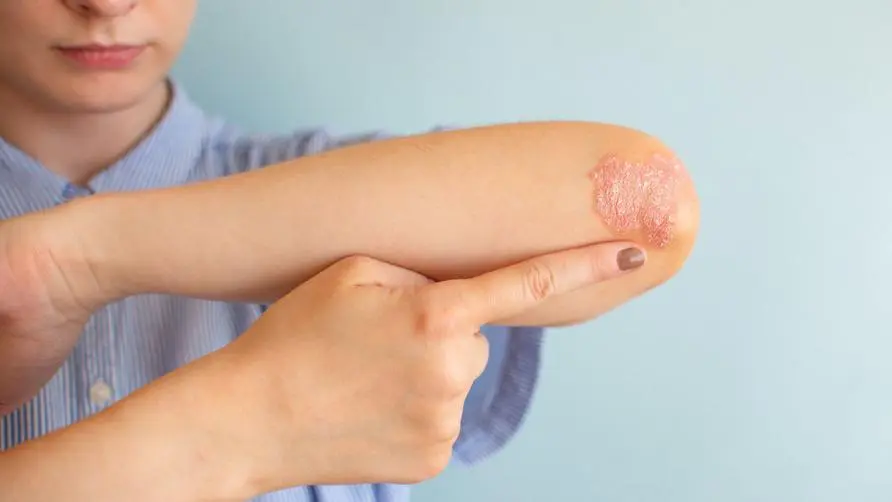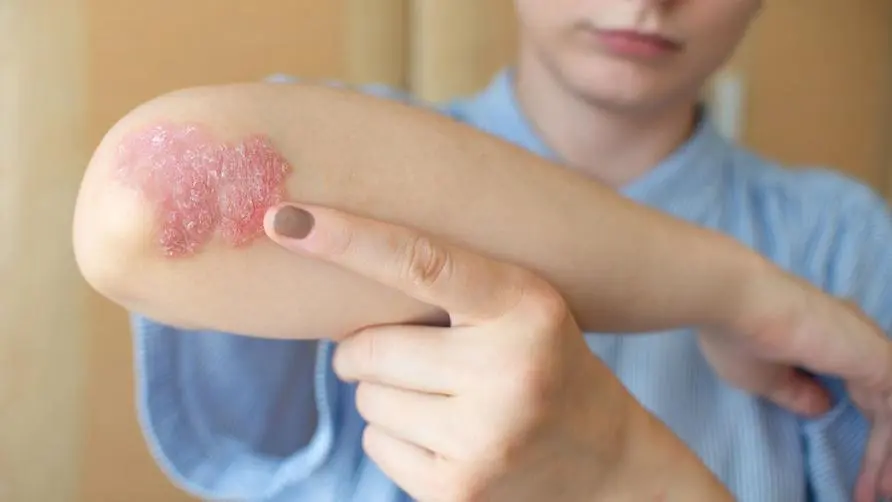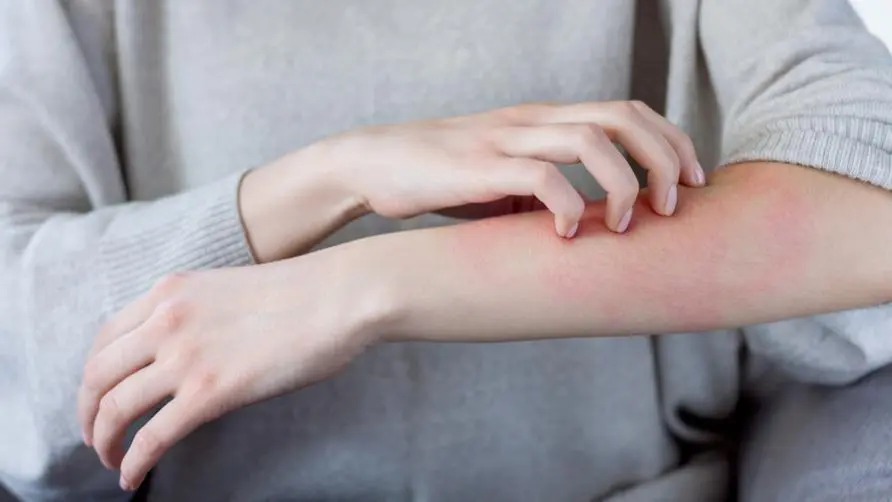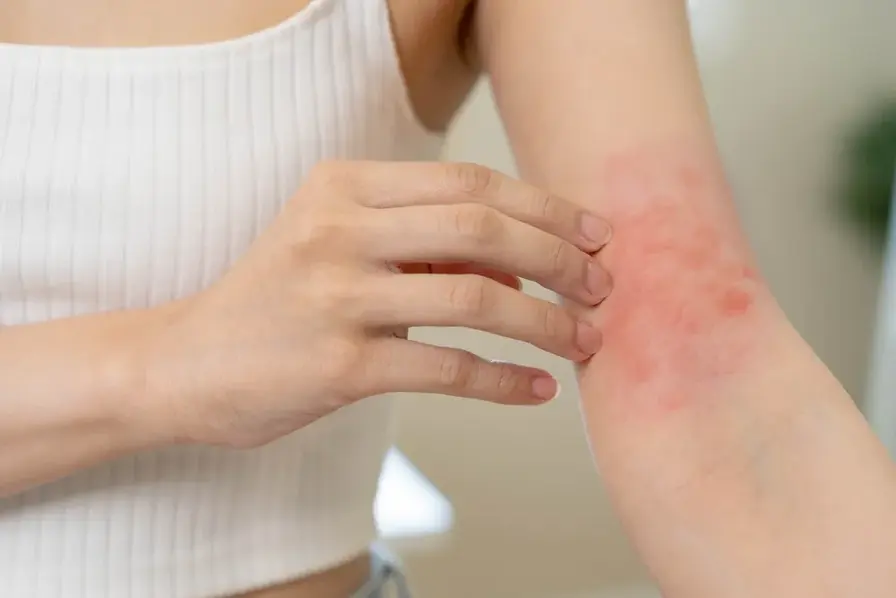What is psoriasis? Which areas should you pay attention to if there are signs? Doctor: Taking "supplements" indiscriminately affects immunity and may cause a major outbreak
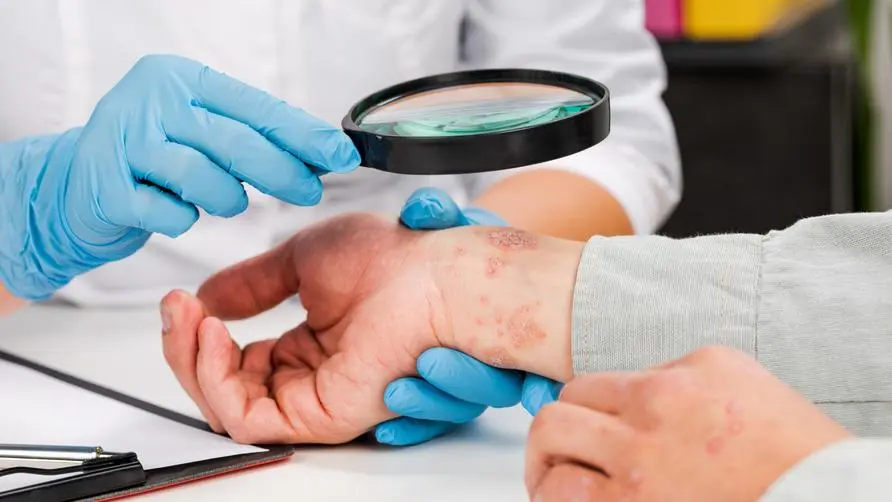
What is psoriasis? What signs should you pay attention to in your body?
Joint pain, deformed nails, and red patches on the skin are all related to psoriasis? Physician Luo Yang from the Dermatology Department of Neihu Cathay Clinic said that psoriasis is an immune disorder disease that increases the growth rate of skin cells, causing rapid desquamation. The biggest characteristic is that there will be well-defined red patches on the skin surface with silver. White flakes appear on the scalp, behind the ears, knees, elbows, and groin. Symptoms tend to be more obvious when the temperature is humid and cold.
Dr. Luo Yang pointed out that the nails of patients with psoriasis will have water drop-shaped depressions with little spots. Patients may also have nails that are brittle and easily cracked, which can be easily confused with onychomycosis. Statistics have found that about 10% to 30% of psoriasis patients will develop psoriatic arthritis. When it occurs on the extremities, it can cause enlargement of the fingers, redness, swelling, heat and pain, or pain in the Achilles tendon. In addition, psoriatic arthritis may also occur in the spine and is easily confused with poor posture, degenerative arthritis, etc.
How is psoriasis diagnosed and discovered? Master the 336 rule for early treatment
Dr. Luo Yang reminded that psoriatic arthritis often occurs at the same time as nail problems, which means that psoriasis has spread to distal joints. When joint pain is combined with nail changes, and red plaques are found in the groin, scalp, behind the ears, etc. , special attention should be paid to the possibility that it may be related to psoriasis.
Dr. Luo Yang explained that when skin lesions are suspected to be caused by psoriasis, a biopsy will be performed. For some patients with psoriatic joints, it may be difficult to judge at the initial stage because their symptoms are not severe or their finger curvature is not obvious, so they will be evaluated through imaging assistance and blood testing to detect inflammation index.
Dr. Luo Yang explained that in order to detect the problem of psoriasis early, you should master the “336 rule”: if psoriasis occurs in 3 parts of the scalp, nails, and skin folds; if the joints have three symptoms of stiffness, redness, swelling, and pain; then you should master the 6 months of golden treatment period.
What are the triggers of psoriasis? Will it cause other diseases in the body?
Psoriasis is a disease caused by immune disorders and is not contagious, but many factors in daily life may cause symptoms to break out. Dr. Luo Yang pointed out that injuries and abrasions may induce psoriasis. Streptococcal wound infection is also clearly associated with water droplet psoriasis. In addition, certain drugs, such as antimalarial drugs, quinine drugs, systemic steroids, blood pressure drugs, and lithium salt drugs, may induce psoriasis attacks.
Dr. Luo Yang reminds that excessive drinking may also trigger psoriasis. Ingredients that excessively enhance immunity, such as Ganoderma lucidum, Angelica sinensis, Brazilian mushrooms, Cordyceps sinensis, etc., may cause psoriasis to become more serious. You should pay attention to your physical condition before eating. In addition, stress can also worsen psoriasis. Past studies have found that about 30% to 40% of patients have worsening symptoms due to work and school pressure.
Psoriasis not only causes skin lesions, but may also increase the risk of other comorbidities. Dr. Luo Yang explained that patients with psoriasis are more likely to develop cardiovascular disease, diabetes, and metabolic syndrome. Some patients also develop inflammatory bowel diseases such as Crohn’s disease. Moderate to severe patients may also develop psoriatic arthritis. Psoriasis patients are prone to depression due to stress, so the risk of mental illness is higher than that of ordinary people.
What are the treatments for psoriasis? Can 90% of lesions be cleared with proper treatment?
Dr. Luo Yang said that treatments for psoriasis include oral immunosuppressants, ultraviolet light therapy, biological agents, etc. National health insurance currently covers two lines of oral immunosuppressants and ultraviolet light therapy. If the psoriasis area does not improve after treatment and the symptoms are still severe, biological agents will be covered. Topical ointments mainly use vitamin D derivatives mixed with steroid ingredients.
Dr. Luo Yang gave an example. In the past, he treated a patient who was in his 20s. The initial symptoms were flaking and dry skin. Later, he developed nail and joint pain and was unable to lift heavy objects. The disease affects daily life even more. For example, when taking a child to a swimming pool, he is not allowed to enter the water due to large areas of skin flaking. The child even hopes that he will not go with him. Seeing that psoriasis caused many difficulties in life, he actively cooperated with the treatment. After receiving biological agent treatment, 90% of the lesions were improved. Not only did his mood become cheerful, but his work and parent-child relationship were also improved.
How do patients with psoriasis take daily care? Don’t eat random foods that can affect your immunity
In addition to active treatment, psoriasis patients should also pay attention to self-care in daily life. Dr. Luo Yang reminds psoriasis patients that if they feel itchy on the affected area, they should try to use gentle tapping instead of scratching. When wearing woolen clothing, you should avoid rubbing your body. It is recommended to wear loose, cotton clothing. Trim your nails regularly.
In addition, psoriasis patients should avoid ingesting foods that affect immunity, such as Antrodia camphorata, Cordyceps sinensis, etc. Reduce alcohol consumption and eat less spicy food and other irritating foods. Since stress can trigger psoriasis, patients are advised to maintain a happy mood, maintain regular sleep, and avoid excessive mood swings.
Dr. Luo Yang reminded that some people regard psoriasis as “ringworm”. There are many related folk remedies and dietary claims. Any attempt may actually worsen the symptoms. He calls on the public to seek medical examination at a dermatology department if they have any skin lesions. If psoriasis is diagnosed, active treatment can effectively improve the lesions. You can also exercise appropriately on weekdays to promote cardiovascular health. However, trauma may trigger psoriasis lesions, so appropriate protective measures should be taken during exercise.


